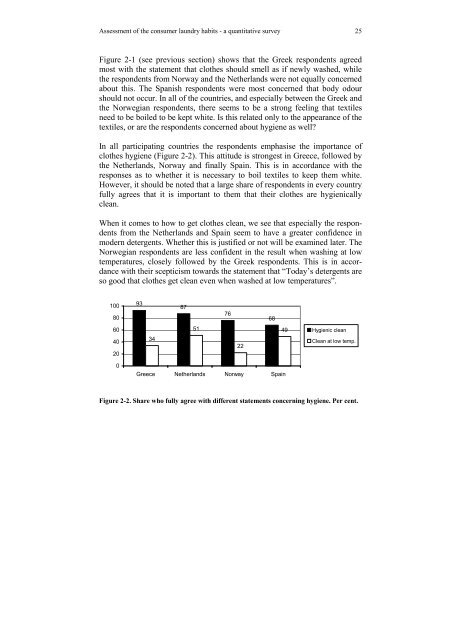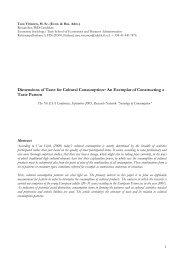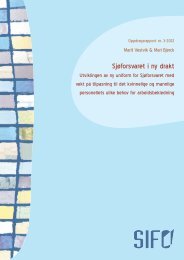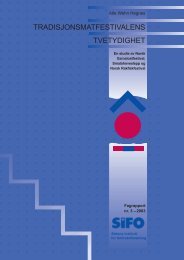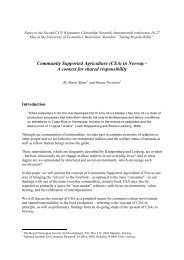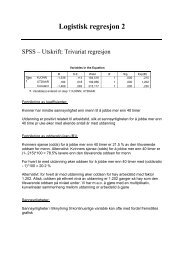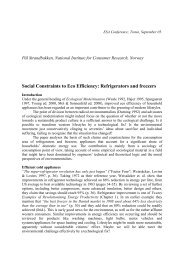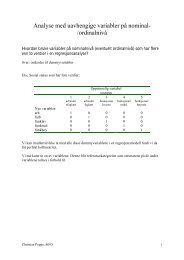an investigation of domestic laundry in europe - habits ... - SIFO
an investigation of domestic laundry in europe - habits ... - SIFO
an investigation of domestic laundry in europe - habits ... - SIFO
Create successful ePaper yourself
Turn your PDF publications into a flip-book with our unique Google optimized e-Paper software.
Assessment <strong>of</strong> the consumer <strong>laundry</strong> <strong>habits</strong> - a qu<strong>an</strong>titative survey 25Figure 2-1 (see previous section) shows that the Greek respondents agreedmost with the statement that clothes should smell as if newly washed, whilethe respondents from Norway <strong>an</strong>d the Netherl<strong>an</strong>ds were not equally concernedabout this. The Sp<strong>an</strong>ish respondents were most concerned that body odourshould not occur. In all <strong>of</strong> the countries, <strong>an</strong>d especially between the Greek <strong>an</strong>dthe Norwegi<strong>an</strong> respondents, there seems to be a strong feel<strong>in</strong>g that textilesneed to be boiled to be kept white. Is this related only to the appear<strong>an</strong>ce <strong>of</strong> thetextiles, or are the respondents concerned about hygiene as well?In all participat<strong>in</strong>g countries the respondents emphasise the import<strong>an</strong>ce <strong>of</strong>clothes hygiene (Figure 2-2). This attitude is strongest <strong>in</strong> Greece, followed bythe Netherl<strong>an</strong>ds, Norway <strong>an</strong>d f<strong>in</strong>ally Spa<strong>in</strong>. This is <strong>in</strong> accord<strong>an</strong>ce with theresponses as to whether it is necessary to boil textiles to keep them white.However, it should be noted that a large share <strong>of</strong> respondents <strong>in</strong> every countryfully agrees that it is import<strong>an</strong>t to them that their clothes are hygienicallycle<strong>an</strong>.When it comes to how to get clothes cle<strong>an</strong>, we see that especially the respondentsfrom the Netherl<strong>an</strong>ds <strong>an</strong>d Spa<strong>in</strong> seem to have a greater confidence <strong>in</strong>modern detergents. Whether this is justified or not will be exam<strong>in</strong>ed later. TheNorwegi<strong>an</strong> respondents are less confident <strong>in</strong> the result when wash<strong>in</strong>g at lowtemperatures, closely followed by the Greek respondents. This is <strong>in</strong> accord<strong>an</strong>cewith their scepticism towards the statement that “Today’s detergents areso good that clothes get cle<strong>an</strong> even when washed at low temperatures”.100809387766860402034512249Hygienic cle<strong>an</strong>Cle<strong>an</strong> at low temp.0Greece Netherl<strong>an</strong>ds Norway Spa<strong>in</strong>Figure 2-2. Share who fully agree with different statements concern<strong>in</strong>g hygiene. Per cent.


